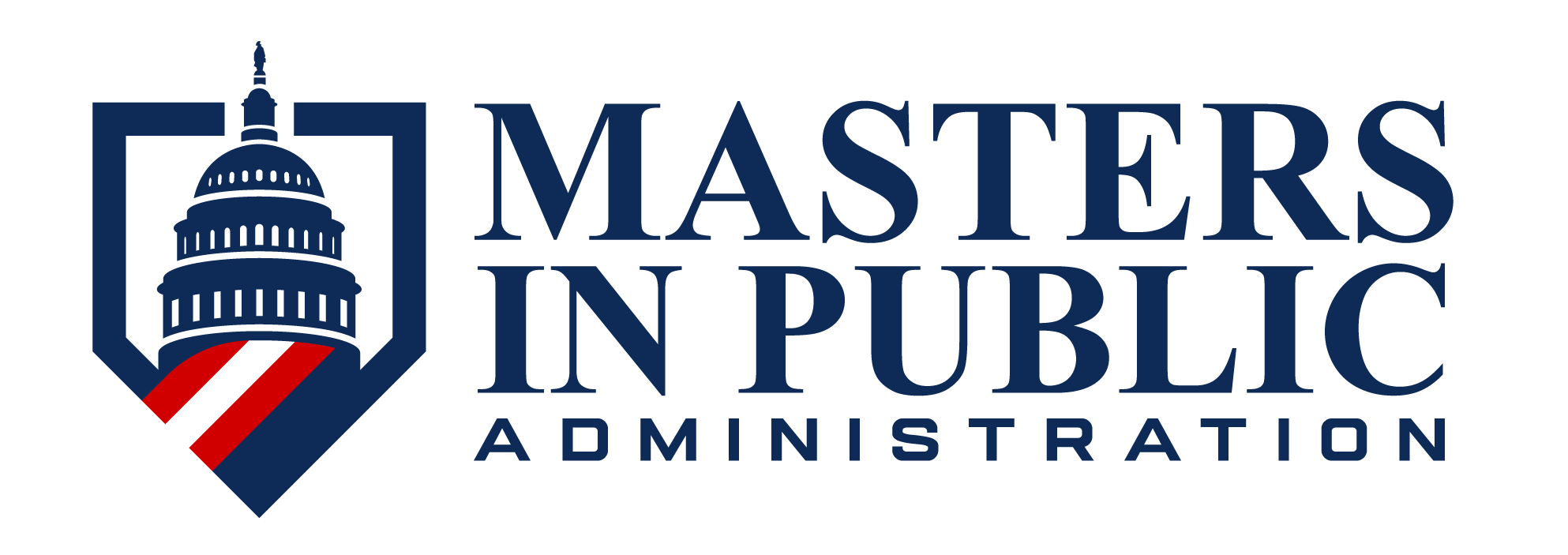Introduction
In a rapidly changing world, a Master of Public Administration (MPA) degree offers a dynamic skill set that opens doors to a multitude of career paths. Whether you’re a recent graduate or a seasoned professional seeking to enhance your qualifications, an MPA degree can lead to a fulfilling and impactful career in public service. In this post, we’ll explore the diverse opportunities that come with an MPA degree, examining different pay scales, common job roles at various levels, and how these roles contribute to community development.
ADVERTISEMENT
Walden University
Online Public Policy and Administration Programs
Walden University’s Public Administration programs are taught by a distinguished faculty of scholar-practitioners, many of whom have senior-executive experience in government and public service. Programs include:
Arizona State University
Online Master of Public Administration (MPA)
ASU’s Online Master of Public Administration provides students with a curriculum that covers leadership strategies, ethical decision-making, and effective management across various organizations.
Liberty University
Online Master of Public Administration (MPA)
Liberty University’s Master’s Degree in Public Administration Online is designed to equip students with a thorough background in the theories and practices essential for success in government and nonprofit roles. MPA areas of focus include:
Southern New Hampshire University
Online Public Administration & Political Science Degrees
Stand up and be counted with a degree in public administration/political science from Southern New Hampshire University—and learn how to facilitate change from within the system. Program offerings include:
Role Progression
Your professional career with a Master of Public Administration (MPA) degree opens doors to a diverse array of opportunities. The progression typically involves ascending through various levels of responsibility and leadership. Let’s explore the role progression of an MPA graduate from entry-level positions to executive leadership.
Entry-Level Positions
Fresh MPA graduates often find themselves well-prepared for entry-level positions in government agencies, non-profit organizations, and public service entities. Common roles include program assistants, policy analysts, and research associates. While the pay scale may vary, entry-level positions provide an excellent foundation for gaining practical experience and understanding the inner workings of public administration.
Median Salary: $65,155
Overview:
Conduct policy research and analysis, develop and evaluate policies and programs, coordinate with various stakeholders to implement policy initiatives.
Median Salary: $64,492
Overview:
Develop and implement comprehensive urban plans, collaborate with stakeholders to address community needs and aspirations, evaluate the impact of development projects.
Mid-Level Positions
As professionals gain experience, they can progress into mid-level positions such as program managers, policy advisors, or budget analysts. Mid-level roles often come with increased responsibilities and higher pay scales. Professionals in these positions play a crucial role in implementing and overseeing policies, ensuring their organizations operate efficiently.
Median Salary: $67,440
Overview:
Develop and implement public relations strategies, coordinate communication efforts for the organization, engage with media and the public to convey messages.
Median Salary: $69,535
Overview:
Identify and pursue grant opportunities, prepare grant proposals and applications, manage grant-funded programs and ensure compliance.
Managerial Positions
With a few years of experience, MPA graduates can transition into managerial roles such as department heads, city managers, or directors of public programs. These positions involve strategic decision-making, resource allocation, and leadership. Compensation at this level reflects the increased responsibility and impact on organizational outcomes.
Median Salary: $130,000
Overview:
Oversee human resources functions, develop and implement HR policies and procedures, manage recruitment, employee relations, and training programs.
Median Salary: $129,484
Overview:
Oversees the planning and development of urban spaces, assists in managing a department responsible for urban and transportation planning.
ADVERTISEMENT
Walden University
Online Public Policy and Administration Programs
Walden University’s Public Administration programs are taught by a distinguished faculty of scholar-practitioners, many of whom have senior-executive experience in government and public service. Programs include:
Arizona State University
Online Master of Public Administration (MPA)
ASU’s Online Master of Public Administration provides students with a curriculum that covers leadership strategies, ethical decision-making, and effective management across various organizations.
Liberty University
Online Master of Public Administration (MPA)
Liberty University’s Master’s Degree in Public Administration Online is designed to equip students with a thorough background in the theories and practices essential for success in government and nonprofit roles. MPA areas of focus include:
Southern New Hampshire University
Online Public Administration & Political Science Degrees
Stand up and be counted with a degree in public administration/political science from Southern New Hampshire University—and learn how to facilitate change from within the system. Program offerings include:
Executive and Director Positions
For those aspiring to the pinnacle of public administration, executive roles like city administrators, CEOs of nonprofits, or government agency directors are attainable with an MPA degree. These positions involve setting organizational vision, shaping policy direction, and managing large-scale operations. The compensation at this level is competitive and reflects the influence these leaders have on shaping communities and public services.
Median Salary: $178,267
Overview:
Serves as the liaison between staff and elected officials, directs multiple departments and programs, shapes the overall strategic direction of the city, communicates daily with community stakeholders.
Median Salary: $182,871
Overview:
Monitor legislative and regulatory developments, advocate for the organization’s interests with government agencies, develop and maintain relationships with policymakers.
Factors Influencing Professional Development
From academic pursuits to practical experience, networking, and ongoing learning, professionals in public administration navigate a dynamic landscape that demands adaptability and a commitment to continuous improvement. This sector’s unique blend of public policy, governance, and community service underscores the importance of factors such as mentorship, networking opportunities, specialized skills development, and staying abreast of evolving trends.
Education and Training
Continuous learning, professional development, and perhaps further education, such as obtaining a Doctorate in Public Administration (DPA), can enhance one’s qualifications and readiness for higher-level roles.
The American Society for Public Administration (ASPA) and the International City/County Management Association (ICMA) are two organizations that offer educational training, webinars, and professional development opportunities. Memberships to these organizations are usually charged on an annual basis, but offer discounts for current students and interns.
If you are a mid-career or executive that is currently in a full time role, ask about internal funding for professional development opportunities. Many organizations will fund all- or a portion of- expenses related to attending professional conferences, classes, and training opportunities.
Demonstrated Leadership and Results
Success in mid-level positions often relies on the ability to demonstrate leadership skills and deliver tangible results. Managers and executives are chosen based on their track record of effective decision-making and positive outcomes.
Explore online platforms and communities dedicated to local government professionals. Platforms like ELGL (Engaging Local Government Leaders) offer forums, webinars, and resources for networking and professional development. Joining local government associations or leagues provides access to resources, events, and networking opportunities. Associations such as the National League of Cities (NLC) offer valuable insights and support.
Networking and Mentoring
Building a network within the public administration field and seeking mentorship can provide valuable guidance and open doors to new opportunities. A mentor, often an experienced professional in the field, can provide valuable guidance and advice based on their own experiences. They can help MPA students navigate career decisions, set goals, and overcome challenges.
As an example, the Illinois City/County Managers Association (ILCMA) offers a mentorship program for students, early-career, and mid-career professionals. The ILCMA Mentor Match program matches eligible professionals with individuals in executive leadership positions based on interests, professional focuses, and location. Those who pair with each other both benefit from unique perspectives, networking, and career progression advice.
Adaptability and Innovation
Public administration is dynamic, and those who can adapt to changing circumstances and bring innovative solutions to the table are often the ones who progress to higher levels. Many governments, at various levels, have established innovation labs or departments dedicated to researching and implementing innovative solutions. Examples include the United States Digital Service (USDS).
Regularly reading public policy journals and publications can provide MPA professionals with the latest research and case studies on innovative government solutions. Journals like Public Administration Review (PAR) and Government Executive cover relevant topics. Universities with strong public administration or policy research centers often conduct studies on innovative government solutions. Engage with these centers to stay informed about ongoing research.
Profiling Career Focuses
A Master of Public Administration (MPA) opens doors to a range of specialized career focuses, each addressing unique aspects of public policy, administration, and societal challenges. From nonprofit management to urban planning, criminal justice administration, and legislative affairs, MPA graduates can tailor their expertise to make a meaningful impact in areas aligned with their passions and societal needs. This profile aims to explore distinct MPA career focuses, shedding light on the key skills, responsibilities, and pathways for professionals dedicated to driving positive change in the public sector.
Urban Planning and Community Development
Overview: Urban planning and community development professionals play a crucial role in shaping the physical, social, and economic aspects of cities and neighborhoods. Their work involves creating sustainable and inclusive environments, addressing housing needs, and promoting economic growth while considering environmental impact.
Qualifications: A typical career path in urban planning and community development requires at least a bachelor’s degree in urban planning, geography, public administration, or a related field. Many professionals pursue master’s degrees, such as a Master of Urban Planning (MUP) or a Master of Public Administration (MPA) with a focus on urban affairs.
Responsibilities:
- Land Use Planning: Develop plans to guide the use of land in a community, considering residential, commercial, and recreational needs.
- Transportation Planning: Design and implement transportation systems to enhance mobility and reduce congestion.
- Community Revitalization: Work on projects to rejuvenate and enhance neighborhoods, often involving economic development initiatives.
- Environmental Sustainability: Integrate sustainable practices to minimize environmental impact and promote eco-friendly development.
- Affordable Housing: Address housing challenges by developing strategies for affordable housing initiatives.
- Policy Development: Contribute to the creation and implementation of policies that shape urban development.
Challenges and Rewards: Challenges in this field may include navigating complex regulatory environments, managing community expectations, and addressing issues of gentrification. The rewards lie in contributing to the creation of vibrant, sustainable, and equitable communities that enhance residents’ quality of life.
Professional Organizations:
- American Planning Association (APA)
- International Society of City and Regional Planners (ISOCARP)
- Urban Land Institute (ULI)
Local and County Government Management
Overview: Local and county government management professionals are key players in the effective functioning of local communities and regions. They oversee the delivery of public services, implement policies, and ensure efficient governance. The scope of their work covers a broad range of services, including public safety, infrastructure, healthcare, and social services.
Qualifications: A career in local and county government management typically requires a bachelor’s degree in public administration, political science, business administration, or a related field. Many individuals in leadership roles hold advanced degrees such as a Master of Public Administration (MPA) or a Master of Public Policy (MPP).
Responsibilities:
- Administrative Oversight: Manage day-to-day operations of local government departments, ensuring efficiency and compliance with policies.
- Community Engagement: Engage with the community to understand needs, gather feedback, and foster collaboration.
- Policy Development: Work with elected officials to develop policies that align with community values and priorities.
- Public Services Delivery: Oversee the delivery of essential services such as public safety, public works, healthcare, and social services.
- Emergency Management: Plan and coordinate responses to emergencies and natural disasters within the community.
- Economic Development: Implement strategies to promote economic growth, attract businesses, and create job opportunities.
Challenges and Rewards: Challenges in this field may include managing limited resources, addressing complex community issues, and navigating political dynamics. The rewards lie in making a positive impact on the community, improving residents’ quality of life, and contributing to the overall well-being of the region.
Professional Organizations:
- International City/County Management Association (ICMA)
- National Association of Counties (NACo)
- Alliance for Innovation in Local Government
State and Federal Legislative Affairs
Overview: Professionals in state and federal legislative affairs play a vital role in the legislative process, advocating for policies and initiatives on behalf of organizations, industries, or government entities. They navigate the legislative landscape, build relationships with lawmakers, and shape public policy at the state or federal level.
Qualifications: A career in state and federal legislative affairs typically requires a bachelor’s degree in political science, public policy, law, or a related field. Many individuals in legislative affairs hold advanced degrees, such as a Master of Public Administration (MPA), Juris Doctor (JD), or Master of Public Policy (MPP).
Responsibilities:
- Advocacy and Lobbying: Representing organizations or industries to advocate for specific legislative outcomes or policy changes.
- Policy Development: Collaborating with policymakers and stakeholders to shape and refine legislative proposals.
- Legislative Monitoring: Monitoring and analyzing proposed legislation, identifying potential impact on the organization or industry.
- Coalition Building: Forming alliances and coalitions with like-minded organizations to amplify advocacy efforts.
- Public Testimony: Providing testimony during legislative hearings to express support or concerns regarding proposed bills.
- Political Strategy: Developing and implementing strategies to achieve legislative goals and objectives.
Challenges and Rewards: Challenges in this field may include navigating the complex legislative process, managing competing interests, and adapting to political changes. The rewards lie in influencing policy decisions, shaping legislation, and advancing the interests of the organization or industry.
Professional Organizations:
- Association of Government Relations Professionals
- National Conference of State Legislatures (NCSL)
- Public Affairs Council
Nonprofit Management
Overview: Professionals in nonprofit management play a crucial role in leading and guiding organizations dedicated to social impact and community service. They manage the daily operations, fundraising efforts, and strategic direction of nonprofits, ensuring their missions are effectively executed.
Qualifications: A career in nonprofit management typically requires a bachelor’s degree in nonprofit management, business administration, social work, or a related field. Many individuals in leadership positions hold advanced degrees, such as a Master of Nonprofit Management (MNM) or a Master of Public Administration (MPA) with a nonprofit focus.
Responsibilities:
- Organizational Leadership: Overseeing the day-to-day operations, including program management, staff supervision, and financial oversight.
- Fundraising and Development: Creating and implementing fundraising strategies, securing grants, and cultivating relationships with donors and sponsors.
- Strategic Planning: Developing and executing long-term strategies to achieve the nonprofit’s mission and goals.
- Community Outreach: Engaging with the community, collaborating with stakeholders, and fostering partnerships to address social issues.
- Governance and Compliance: Ensuring compliance with regulations, managing board relations, and maintaining transparency in organizational governance.
- Impact Assessment: Measuring and evaluating the impact of programs and initiatives on the community and adjusting strategies accordingly.
Challenges and Rewards: Challenges in this field may include managing limited resources, addressing complex social issues, and adapting to changes in funding. The rewards lie in making a tangible impact on communities, advancing social causes, and contributing to positive societal change.
Professional Organizations:
- Association of Fundraising Professionals (AFP)
- National Council of Nonprofits
- Alliance for Nonprofit Management
Criminal Justice Administration
Overview: Professionals in criminal justice administration play a pivotal role in managing and overseeing the operations of law enforcement agencies, correctional facilities, and other components of the criminal justice system. They focus on ensuring public safety, enforcing laws, and implementing policies to achieve effective and fair administration of justice.
Qualifications: A career in criminal justice administration typically requires a bachelor’s degree in criminal justice, criminology, public administration, or a related field. Advanced degrees, such as a Master of Public Administration (MPA) or a Master of Criminal Justice (MCJ), may enhance career opportunities, especially for leadership roles.
Responsibilities:
- Law Enforcement Oversight: Overseeing law enforcement agencies and ensuring adherence to laws, policies, and ethical standards.
- Correctional Facility Management: Managing correctional facilities, ensuring safety, security, and the rehabilitation of inmates.
- Policy Implementation: Translating laws and policies into operational procedures for effective criminal justice administration.
- Community Engagement: Engaging with the community to address concerns, build trust, and foster positive relationships between law enforcement and residents.
- Crisis Response: Managing responses to emergencies, crises, and critical incidents that require law enforcement intervention.
- Training and Professional Development: Implementing training programs to enhance the skills and knowledge of law enforcement and correctional staff.
Challenges and Rewards: Challenges in this field may include addressing issues of public trust, navigating complex legal frameworks, and managing resource constraints. The rewards lie in contributing to public safety, ensuring justice is administered fairly, and making communities safer.
Professional Organizations:






